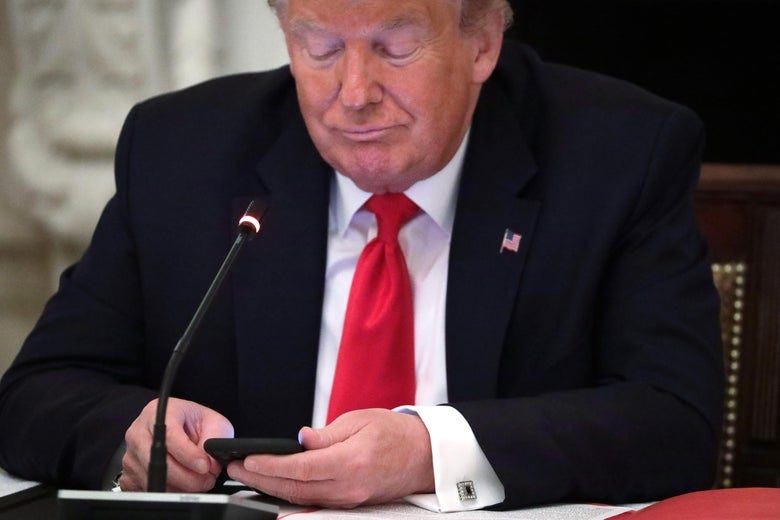Accordingly, #digital technology is upheaving our culture and displacing the traditions and norms we were accustomed to, leaving many of us feeling unmoored and undermining our political values.
#Online conversations quickly developed controls in the form of moderators—authoritarian figures who established the rules of engagement and who got to decide what speech was worthy and what was not.
There was a resultant demand for more controls. #Ignore buttons popped up and were quickly used for individuals who espoused ideas that the user disagreed with, limiting their exposure to different ideas and establishing the pattern for the silo-ization of the internet that is dominant today.
Unlike the offline world in which people were judged through personal knowledge, direct observation, and reputation, individuals online could only be judged by the content of their digital output, which reduced them to flat, dehumanized vectors of information to be categorized as #good or #bad
Thus, the new controls spawned by the digital realm to deal with #information overload involved the establishment of a binary, ideological filter to judge whether information—as well as the poster of that information—should be included or excluded in a particular #community.
Unfortunately, once the ideological binary is established as the moral paradigm, group discourse becomes a never-ending #witch hunt.
Group leaders and members are on constant lookout for potential immorality as represented by supposed outsiders to the #group. Anyone who disturbs the group harmony with deviant thoughts can find themselves the sudden target of paranoiac suspicion.
Every #conversation becomes a purity test of sorts, and the only way to prove that you are one of the “good” guys is to make your expressions a reflection of the group’s worldview
#Groupthink became the norm, and anyone who deviated from the group too much would be seen as a danger to the group who needed to be punished or eliminated.
Thus, thanks to the #internet, #intolerance for dissent and demands for #censorship arose as aspirational values of a new moral order.
Consequently, the controls that developed in response to digital technology were exactly those controls that are used in the formation of cults and #totalitarian #regimes, tools to ensure that every person falls in line with the orthodoxy as determined by the leadership of the group.
control of information within an environment (moderation, fact checks, content #warnings, removal of information, prioritizing certain viewpoints, etc.);
- demands for purity in thought to assure that everyone conforms to the group
- sacred truths that cannot be questioned without some form of reprisal, usually removal from the group or platform
- the reduction of complex ideas to trite slogans and memes
- control over who belongs to the group and who does not
- the subordination of the individual to the group
These totalitarian #controls are quotidian at this point, and anyone who participates in discourse on the internet is exposed on a daily basis to enormous pressure to conform their thoughts to the narratives that are perpetuated by those in control of the internet fora.
Without realizing it, we slowly brainwashed ourselves over time with our uncritical and pervasive use of digital technology.
It was therefore inevitable that once we accepted these digital values as normal, they would then infiltrate our offline interactions.
While we think of ourselves as using digital tools to change our world, in reality digital technology is changing us.
Most people in the Western world are never disconnected from the totalitarian culture of the internet. That is why digital cultural norms are now dominating our #society
In effect, the digital controls that developed in order to control the overabundance of information on the internet led to polarized, cultish thinking and conditioning people to believe that totalitarianism is a necessary form of regulation in today’s world.
#Dissent is now treated as a danger that needs to be eradicated. Worse still, this cultish conditioning is bleeding into the #offline world so that anti-democratic, authoritarian measures are increasingly seen as normal in the “free” world.
Many people are chilled from speaking, not just online where they may end up banned by a tech platform, but offline where they face the possible consequences of losing jobs, networking opportunities, and friendships.
The universe of ideas that is acceptable to be expressed is rapidly shrinking and people are exposed to fewer ideas that challenge their views, which further reinforces their #intolerance for differences of opinion in a cyclical manner.
Much like George #Orwell ’s #doublespeak, people in contemporary society are pressured to conceal their true thoughts and dilute their public messages to the point that they become anodyne and meaningless enough that the mob will tolerate them.
Thus, facts, #transparency, and rationality are inimical to digital culture. Conformity, not #truth, is the driving force of digital culture.
By programming individuals to become accustomed to totalitarian regulations on a personal level, it was inevitable that these digital norms would also pervade the political realm.
Anything that could allow a person or group to express an unorthodox idea is suspicious, and therefore in digital culture, the concept of free speech is inherently dangerous.
The paternalistic notion that individuals must be protected from corruption by bad ideas has taken hold of our culture. And this type of milieu control of information enables independent thought to be supplanted by majoritarian #propaganda just as it does in other totalitarian environments.
The assumption that the individual is neither competent to judge the quality of information nor strong enough to be exposed to information of allegedly dubious quality now reigns supreme, bolstering the new flourishing culture of censorship.
They are dismissive because they actually want a world with limited speech, where the window of permissible thought is narrow enough to exclude all the speech they disagree with.
Thus, while digital culture proponents often nominally claim to want to protect minority groups, their insistence on conformity to majoritarian standards ensures that genuine diversity cannot exist in the new moral order
#Speech is an outward expression of inner beliefs, and the loss of freedom of speech is dangerous because it is a threat to the ability to hold and practice a belief system that differs from the orthodoxy.
Consequently, digital morality is a direct attack on #minority rights.






